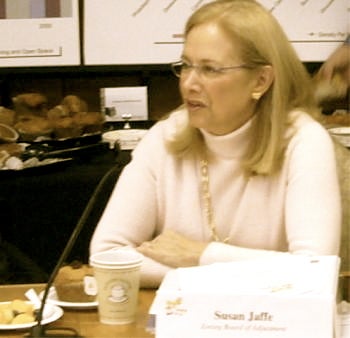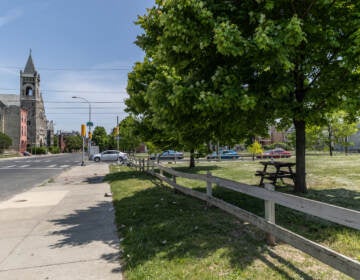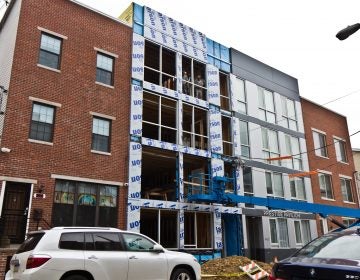ZBA weighs changes

Sept. 29
By Thomas J. Walsh
For PlanPhilly
Changes in the way the Philadelphia Zoning Board of Adjustment operates could be on the way, but it’s unclear if they would take effect before the zoning code itself is rewritten next year.
Developers, planners and zoning attorneys, fatigued with what they call a slow-moving agenda at the ZBA, have been complaining for weeks about dozens of hearings that have been postponed for up to three months because of the ZBA’s inability to have a quorum. Currently, it takes the presence of four of the six board members to make up a quorum.
Fran Burns, commissioner of the city’s Department of Licenses & Inspections, which overseas the ZBA, said this week that the problems – though overstated – are being reviewed, and that in general she supports proposed tweaks.
“We have heard it as a challenge, but I wouldn’t generalize it to say that it is stopping development in the city,” Burns said. “We do realize that frustration is an issue.”
Burns said that city revenues from building permits were down 35 percent in fiscal year 2009 compared to fiscal year 2008. But she added, “We’re not cavalier to some of the things that are happening. We are very sensitive to the impact of a lack of quorum, and [that it’s] noticeable.”
Frustration levels seem to have been rising since July, when board members were absent because of overlapping vacations, an extended personal leave for one board member and a prolonged death in the family of another.
Postponements and a lack of quorum are “not unusual,” said ZBA Chairman Susan Jaffe, in an interview with PlanPhilly earlier this month. “We have waived a quorum when it’s a non-disputed case.”
A quorum cannot be waived for any case that is disputed.
Jaffe, who also sits on the Zoning Code Commission, said that she has told Mayor Michael Nutter that she is on personal leave until “probably in October at some point.”
Earlier this month, Councilman Darrell Clarke introduced a bill that would reduce the ZBA from six board members to five – and reduce the number needed for a quorum to three. The measure says that the sitting L&I commissioner would serve as an alternate. Because it would change the city’s Home Rule Charter, the bill would require voters’ approval.
Burns, as the current L&I chief, is that sixth board member, and is called on to sit for hearings to make up a quorum. However, because of her heavy schedule, she’s often not able to substitute on a last-minute basis.
Several senior developers and zoning attorneys who are upset with the ZBA called the current state of affairs “dysfunctional,” but declined to comment on the record, stating that they have to appear often in front of the board.
“You need four of the five members for a quorum,” said Joseph Manko, a former interim ZBA member and a partner at Manko, Gold, Katcher & Fox, LLP. “I mean, 80 percent – that should be changed.”
Nonetheless, Manko said he believes the current state of affairs is only circumstantial. “I think it’s a bunch of separate personal issues” that caused the absences, he said. “It is a lot of work. But that kind of dysfunction is going to happen – it’s not just a ZBA thing.”
In a September 18 article in The Inquirer, Brian Abernathy, director of policy and public affairs for Councilman Frank DiCicco, said, “We’ve heard of a number of projects that have completely died” because of the delays. “Six months waiting for a zoning variance just isn’t appropriate.”
Along with Jaffe, current ZBA members are Lynette Brown-Sow, Peter Gonzales, Anthony Lewis Jr. and Carol Tinari.
When Nutter appointed Jaffe chairman in January of 2008, replacing David Auspitz, his opinion of the ZBA was well known.
In the fall of 2007, while running for mayor, Nutter had this to say about the agency: “It’s time to close the circus-under-the-big-top atmosphere and make land use decisions like grown ups.
“Currently, even the most minimal variance request requires a hearing in front of the Zoning Board of Adjustment. The current backlog of cases results in a waiting time that can be months. This holding period makes projects more expensive — a cost which can derail worthy projects if it cannot be passed on to the end user. A public hearing is not the appropriate setting to decide on minimal dimensional variances.”
When Jaffe was appointed ZBA chair, she told PlanPhilly that she would like to introduce tools for zoning applicants that would provide a blueprint for adjusted or appealed zoning.
The big developers know what to expect, she said then, or at least their lawyers do. But most homeowners who seek the board’s approval for an addition, a sun deck or a swimming pool have never seen a hearing and have no idea what they’ll encounter. Given the city’s – and the board’s – reputation for wrapping things up in red tape, she said, that makes for a public that dreads the experience.
“I want people to feel that we are there to help them, to serve them, and that this is not to be an unpleasant experience,” Jaffe said, just a day after the new board’s first meeting. “We will try and make it a process that is not intimidating, but helpful for the citizenry.”
Burns said that the work of the Zoning Code Commission, where she is also a member, might have a bearing on changes now being called for, with regard to the “streamlining” of zoning decisions being recommended by outside hired consultants. But she said the structural changes called for in Clarke’s bill would be more immediately felt.
Contact the reporter at thomaswalsh1@gmail.com.
WHYY is your source for fact-based, in-depth journalism and information. As a nonprofit organization, we rely on financial support from readers like you. Please give today.





